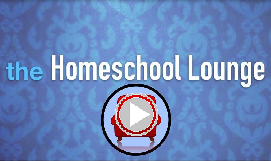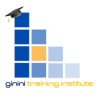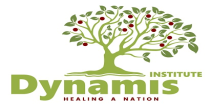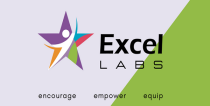GED
The GED is an American High School Equivalency Certificate. It is internationally recognized as a high school leavers equivalent or Grade 12 equivalent in South Africa. Many parents choose this after following a variety of home education approaches.
The South African Qualifications Authority (SAQA) evaluates each submission of a foreign qualification on a case-by-case basis. SAQA has evaluated the GED and found the South African National Senior Certificate (NSC) as its closest comparable qualification.
What are the requirements for a GED diploma?
GED tests can be taken from 17 years of age. No prior grades are necessary to qualify to write the 4 GED tests. Good knowledge of English comprehension is recommended as well as basic Maths skills.
Which subjects do I write?
The subjects are:
- Mathematical Reasoning,
- Science,
- Reasoning through Language Arts and
- Social Studies.
A description of each subject is available on the ged.org.za website. http://www.ged.org.za/index.php/the-ged
TIP: Contact one of the Authorised Education Partners http://www.ged.org.za/index.php/authorised-education-partners/ and ask if they offer a free trial. Try this out and get an idea of the content and level of difficulty.
How do I prepare?
Many students make use of Authorised Education Partners (http://www.ged.org.za/index.php/authorised-education-partners/) to prepare for the exams. Those who prefer books use Cracking the GED by Princeton Review or GED prep by Kaplan to prepare. The exams test general skills to ensure that the student is ready for the workplace or further studies. Good knowledge of English comprehension and basic mathematics is recommended but the online platforms and books will fill in the gaps. There is no prescribed curriculum or syllabus. GED exams can be written one by one whenever a candidate is ready. A candidate can take as long as they like to prepare and then book an exam.
Where do you write exams?
The GED exams are booked through the GED.com website and written at Pearson VUE testing centers at Boston City campuses. There are about 45 centers across South Africa.
How do I book an exam?
Follow the instructions on the GED website:http://www.ged.org.za/index.php/how-to-book-your-test/
How much does it cost?
To study and prepare for the tests you can enroll in online classes with a GED Authorised Education Partner (http://www.ged.org.za/index.php/authorised-education-partners/) which costs about R1000 per month for group classes or R2800 per year to use the platform, depending on the school and services provided. To write the exams the cost per test is $80. The student needs to write and pass ALL 4 tests (Mathematics, Science, Language Arts, Social Studies) to obtain the diploma. The GED hard copy diploma and transcript cost an additional $15 (excl shipping) each.
What do I need to achieve a pass?
A test-taker must earn a minimum score of 145 on each test subject to pass and earn the high school equivalency credential. If a candidate fails, they may retake the exam two additional times at any time. Should they fail a third time, they would have to wait 60 days before the next attempt. There is no minimum grade criterion to qualify for such a rewrite opportunity but the candidate will need to pay a test fee.
What do I receive after I pass the tests?
On successful completion of all 4 tests, you will be issued an electronic version of your GED High School Equivalency Credential issued by the Office of the State Superintendent of Education in Washington, DC. You can also order a hard copy of the GED diploma or transcript courier with FedEx after completing your GED diploma. The links to access the electronic copies that are emailed to you are only valid for 60 days. If they expire before you have accessed and downloaded your Diploma and Transcript, you must log in to your GED.com profile and reorder. The cost to re-order is $15 each.
How to use your GED for study purposes.
Many homeschoolers with a GED have studied successfully at universities and colleges. USAf (Universities of South Africa) have unfortunately clamped down on the regulations relating to the issuing of Foreign Conditional Exemption. They will no longer consider applications for Foreign Conditional Exemption from South African GED graduates from 2020 (except if you are a citizen of another country). Graduates are needing to find an alternative to meet the requirements should they want to study towards a degree at a tertiary institution. Boston City Campus is accepting South African GED students for many of their Degree programs, provided that the student achieves the required GED scores. Boston will apply for the student. As they are recognizing the GED for acceptance, they meet certain requirements and this has been agreed with USAf.
GED graduates can also apply to study for a Higher Certificate at many tertiary institutions. A Higher Certificate is registered at NQF level 5 and after completing a Higher Certificate, can apply for an undergraduate degree. Progressing from a Higher Certificate into a Degree, students could potentially transfer up to 50% of their credits.
Many overseas universities such as the University of the People accept the GED for admission purposes and offer highly regarded degree programs. South African GED graduates who wish to enroll for degree study have the option to consider overseas universities or online overseas universities.
GED graduates can apply to SAQA for a certificate of valuation as an NQF Level 4 in South Africa. SAQA (the South African Qualifications Authority) has evaluated the GED® and found the National Senior Certificate as its closest comparable qualification. This is useful for job applications or applying at a local tech or college.
To apply to do a Higher Certificate ( NQF Level 5) * Only a SAQA certificate will be necessary for this. A Higher Certificate (NQF5) may then qualify you for a complete exemption at USAf which may enable you to apply for degree studies provided you meet the entrance requirements of the faculty or university offering the degree.
The advantages of the GED
- Allows freedom and flexibility. Parents can follow any curriculum of their choice up to the age of 16 before the student starts preparing for the GED exams. Students can still focus on their other interests (hobbies, businesses) and not spend years to obtain a grade 12 equivalent. It is self-paced and students can book a test when they are ready.
- Best-priced option for a family on a tight budget. The student only writes 4 tests and books and pays whenever they are ready.
- Many overseas universities accept the GED for admission purposes and offer highly regarded degree programs. South African GED graduates who wish to enroll for degree study do have the option to consider overseas online universities as well.
- Some English-speaking homeschoolers choose this option as the Afrikaans required for Cambridge and the Afrikaans second language subject as part of the NSC offered by curriculum providers is a problem.
The disadvantages of the GED
- USAf no longer considers applications for Foreign Conditional Exemption for University entrance from South African GED graduates from 2020.
- It is not the best choice if your child is interested in pursuing a field of study, for example, medicine, where there are strict admission requirements.
- The GED is just offered in English and maybe more difficult for students who do not have English as their home language.
Events
Legal & Research
Centres
Homeschool ABC
Support
Curriculums
Has no content to show!































